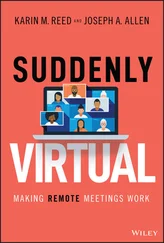*Leyb Rochman was a Jewish writer and journalist who, while in hiding in Europe during World War II, kept a diary that was published as The Pit and the Trap after the war ended. (Ed.)
AFTER TEN DAYS OF TESTS AND OBSERVATION, THE DOCTORS reached a conclusion: nothing more could be done. Though it would be possible to try chemotherapy, in this case it probably wouldn’t work. There were some other, innovative treatments available, but their effectiveness was dubious. Medical science wasn’t raising its hands in surrender, but for the moment it had nothing to suggest. If the patient wanted to try something, they would try it.
The short doctor announced his verdict with some emotion, but he left no doubt as to the majority opinion. The majority left the decision in the patient’s hands. For a moment it seemed to Ernst that the doctor was about to pull a pistol out of his cloak, hand it to him, and say: It’s your decision, to shoot yourself or to bear with prolonged suffering until your death .
Ernst ignores that thought. He asks the doctor how many weeks or months he has left to live. The doctor’s answer is long and detailed, full of medical terms and Latin words, most of which Ernst doesn’t understand. But what he implies is that they can’t estimate how long he has; it varies with the individual, and there are exceptions. He himself had met a patient in Ernst’s condition who lived for a long time after being diagnosed and finally died of another disease. The doctor’s final words sound less like a medical evaluation than like worthless consolation. He stretches out information that could have been conveyed in two sentences.
Ernst returns home that very day and immediately feels better.
Irena leaves the house only to buy medicine and groceries. Now her life is Ernst, only Ernst. She places a folding bed in a corner of the living room, and at night, when Ernst shuts his eyes, she brings her bed close to his. After midnight she gets up to see how he’s sleeping. Ernst sleeps until four and sometimes until five. Irena makes him breakfast and sits at his side.
Since returning from the hospital, Ernst has been telling Irena again about his military service, about the camps that were liberated, and about the soldiers who served in his unit. Even then he had doubts about the path of the Communists and the purity of their intentions, but the war united their hearts. Every advance, every conquered village planted the feeling in the soldiers’ hearts that they were plunging a sharp bayonet into the monster’s scales. That feeling made them drink even more and strengthened their resolve.
They liberated camp after camp. Ernst wanted to love his tormented brethren, but he didn’t allow himself to. He was certain that humanity was marching toward unity and that one day there would be no difference between Jews and non-Jews. But reality slapped him in the face. He ran into anti-Semites everywhere, within the division and outside of it. They liberated the camps, but they were in no hurry to provide the liberated people with basic supplies. After a while, when canned goods from the Joint Distribution Committee began to arrive, he heard the supply officer say, “The whole world takes care of the Jews. The Russian people suffered more.” Ernst heard this and gritted his teeth.
The simple soldiers with whom he fought changed him. They turned him, the commissar-informer, into a fighting man, a devoted officer. When they approached the first camp and he saw his brethren for the first time, pressed up against the fences, Ernst knew how alienated he had become from them. While he was standing there in astonishment, one of the Russian officers whispered, “They look like Jesus of Nazareth. Every one of them looks like Jesus.” The young officer’s display of emotion upon seeing the human skeletons hanging onto the fences gripped Ernst by the throat.
“How do you know they’re like Jesus?” he asked the officer.
“From church,” the officer replied when he had recovered. “In our church the image of Jesus hangs from the cross, thin and tormented, and the thorns on his head are like that barbed wire.”
“Those are Jews,” Ernst said, to test him.
“I know. Jesus was also a Jew.”
Ernst felt as if he had been hit in the face. He stepped back and murmured, “That’s right. That’s right.”
The encounter with the young Russian officer next to the barbed-wire fence was engraved upon him like an accusation. From now on Ernst was fighting on two fronts: against the Germans, of course, and on a second front against the Russian anti-Semites. Every time he managed to steal a food truck, he would drive it to one of the liberated camps.
One night when he entered a camp, some of the wretched inmates were still awake. They had gathered around a small bonfire. Their arms, or rather their bones, were stretched toward the flame. When he spoke to them in Yiddish, they were silent, as if they couldn’t believe their ears. When they recovered, they crawled over to him, hugged his legs and arms, and kissed him. “Take us away from here,” they begged. “Don’t abandon us.”
Ernst felt his flesh crawl, and he wanted to escape. That very night he enlisted the regimental doctor and some medics. They went to the camp, bringing medicine and cans of milk with them. The survivors were so gaunt that they couldn’t even stand on their feet.
The sights of the camp wouldn’t leave him. On several occasions at the nightly roll call, Ernst addressed the company.
“We’re fighting an enemy that built concentration camps and tortured innocent people in them,” he said. He knew that not everyone identified with what he was saying, but most of them, particularly the young, innocent soldiers, knew what he was talking about.
One time one of the soldiers approached him and asked, “What harm did the Jews do, to make the Germans abuse them so badly.”
“It’s hard to know,” Ernst said, to avoid revealing too much.
“They don’t have God in their hearts,” said the young soldier, his innocence evident in his face.
When Ernst tells Irena about the soldiers at the front, something of the officer returns to his face. His words are decisive, and he pushes weakness and the doctors’ report aside, clearing the way for the strength and vitality that fill his large body. If we overcame the fascist monster, we’ll also overcome this weakness , his face says. Irena is so pleased that she doesn’t know what else to do to keep his spirits up.
ERNST DOESN’T TALK ABOUT HIS ILLNESS. HE SITS FOR hours in the armchair and writes. His intention is to join together all the segments of his life. He feels that his army service is an important link in the chain, but the chapters of his youth come first. It’s a journey that will take many days. He has to persevere and not grow weary. Irena understands his mood and tries not to disturb him. She varies his meals, arranges his pills, and if he wants to read her a chapter, she sits at his side and listens. She has noticed that his writing is simpler. She understands almost every word. Sometimes she thinks that he’s doing this for her, and she wants to say, Don’t take me into consideration. My education is limited. You have to write for knowledgeable people .
The Carpathians keep revealing themselves to him, each time in a new vision. When Ernst was eight, his parents sent him to spend the High Holidays with his grandparents. He stayed with them for a whole month, for some weeks before the holidays and after.
Why did they send him there? he has often wondered. True, he was outstanding in school, but to take him out of the classroom and send him far from home — what for? First he attributed it to simple arbitrariness. Later he thought that they were trying to bring him closer to their ancestors. But all these explanations seemed flimsy.
Читать дальше












